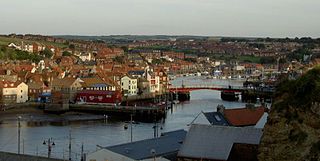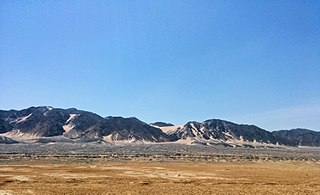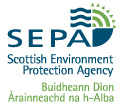
The United Nations Environment Programme (UNEP) is responsible for coordinating responses to environmental issues within the United Nations system. It was established by Maurice Strong, its first director, after the United Nations Conference on the Human Environment in Stockholm in June 1972. Its mandate is to provide leadership, deliver science and develop solutions on a wide range of issues, including climate change, the management of marine and terrestrial ecosystems, and green economic development. The organization also develops international environmental agreements; publishes and promotes environmental science and helps national governments achieve environmental targets.

Microsoft XNA is a freeware set of tools with a managed runtime environment that Microsoft developed to facilitate video game development. XNA is based on .NET Framework, with versions that run on Windows and Xbox 360. XNA Game Studio can help develop XNA games. The XNA toolset was announced on March 24, 2004, at the Game Developers Conference in San Jose, California. A first Community Technology Preview of XNA Build was released on March 14, 2006.

Environmental degradation is the deterioration of the environment through depletion of resources such as quality of air, water and soil; the destruction of ecosystems; habitat destruction; the extinction of wildlife; and pollution. It is defined as any change or disturbance to the environment perceived to be deleterious or undesirable.

The River Esk is a river in North Yorkshire, England that empties into the North Sea at Whitby after a course of around 28 miles (45 km) through the valley of Eskdale, named after the river itself. The river's name is derived from the Brythonic word "isca" meaning "water". The Esk is the only major river in Yorkshire that flows directly into the North Sea; all other watercourses defined as being major rivers by the Environment Agency, either flow to the North Sea via the River Tees or the Humber Estuary.

The River Cuckmere rises near Heathfield in East Sussex, England on the southern slopes of the Weald. The name of the river probably comes from an Old English word meaning "fast-flowing", since it descends over 100 m (328 ft) in its initial four miles (6.4 km). It flows into the English Channel, and has the only undeveloped river mouth on the Sussex coast.

Itbāy or ʿAtbāy is a region of southeastern Egypt and northeastern Sudan. It is characterized by a chain of mountains, the Red Sea Hills, running north–south and parallel with the Red Sea. The hills separate the narrow coastal plain from the Eastern Desert.

The Scottish Environment Protection Agency is Scotland's environmental regulator and national flood forecasting, flood warning and strategic flood risk management authority. Its main role is to protect and improve Scotland's environment. SEPA does this by helping business and industry to understand their environmental responsibilities, enabling customers to comply with legislation and good practice and to realise the economic benefits of good environmental practice. One of the ways SEPA does this is through the NetRegs environmental guidance service. It protects communities by regulating activities that can cause harmful pollution and by monitoring the quality of Scotland's air, land and water. The regulations it implements also cover the storage, transport and disposal of radioactive materials.

Naruto: Rise of a Ninja is an action adventure game for the Xbox 360 with high emphasis on fighting and platforming mechanics, like with most Naruto games, it features cel-shaded graphics. The game was developed by Ubisoft Montreal, making it the first Naruto game to be developed by a non-Japanese company. The game is specifically based on the English dubbed version of the anime. The game was released in 2007. A sequel titled Naruto: The Broken Bond was released in the following year.
The Xbox 360 is a home video game console developed by Microsoft. As the successor to the original Xbox, it is the second console in the Xbox series. It competed with Sony's PlayStation 3 and Nintendo's Wii as part of the seventh generation of video game consoles. It was officially unveiled on MTV on May 12, 2005, with detailed launch and game information announced later that month at the 2005 Electronic Entertainment Expo (E3).

Naruto: The Broken Bond is an action adventure game developed by Ubisoft Montreal and published by Ubisoft for the Xbox 360. It was released worldwide in November 2008. It is a sequel to the 2007 game Naruto: Rise of a Ninja and is the second and final Naruto game to be published by Ubisoft before their rights to the IP expired.

Between 1901 and 2018, the average global sea level rose by 15–25 cm (6–10 in), or an average of 1–2 mm per year. This rate accelerated to 4.62 mm/yr for the decade 2013–2022. Climate change due to human activities is the main cause. Between 1993 and 2018, thermal expansion of water accounted for 42% of sea level rise. Melting temperate glaciers accounted for 21%, with Greenland accounting for 15% and Antarctica 8%. Sea level rise lags changes in the Earth's temperature. So sea level rise will continue to accelerate between now and 2050 in response to warming that is already happening. What happens after that will depend on what happens with human greenhouse gas emissions. Sea level rise may slow down between 2050 and 2100 if there are deep cuts in emissions. It could then reach a little over 30 cm (1 ft) from now by 2100. With high emissions it may accelerate. It could rise by 1 m or even 2 m by then. In the long run, sea level rise would amount to 2–3 m (7–10 ft) over the next 2000 years if warming amounts to 1.5 °C (2.7 °F). It would be 19–22 metres (62–72 ft) if warming peaks at 5 °C (9.0 °F).
This article lists the tributaries of the River Thames from the sea to the source, in England. There are also secondary lists of backwaters of the river itself and the waterways branching off.

Climate change in Bangladesh is a critical issue as the country is one of the most vulnerable to the effects of climate change. In the 2020 edition of Germanwatch's Climate Risk Index, it ranked seventh in the list of countries most affected by climate calamities during the period 1999–2018. Bangladesh's vulnerability to the effects of climate change is due to a combination of geographical factors, such as its flat, low-lying, and delta-exposed topography, and socio-economic factors, including its high population density, levels of poverty, and dependence on agriculture.
This is a list of notable events relating to the environment in 2001. They relate to environmental law, conservation, environmentalism and environmental issues.

Age of Conan: Rise of the Godslayer is an expansion set for the MMORPG Age of Conan. It was announced on August 18, 2009, by Funcom. The expansion is set in the mythical land of Khitai and features a new eastern theme. It was released on May 11, 2010.

Caroline Fraser is an American writer. She won the 2018 Pulitzer Prize for Biography or Autobiography, and the 2017 National Book Critics Circle Award in Biography, for Prairie Fires: The American Dreams of Laura Ingalls Wilder, a biography of American author Laura Ingalls Wilder.

Point Labatt is a headland located on the west coast of Eyre Peninsula in the Australian state of South Australia about 39 kilometres south by east of Streaky Bay. It is notable as one of the largest Australian mainland breeding sites for Australian sea lions. The land and the sea adjoining Point Labatt is part of three protected areas - the Point Labatt Conservation Park, the Point Labatt Aquatic Reserve and the West Coast Bays Marine Park.

The effect of climate change on small island countries can be extreme because of low-lying coasts, relatively small land masses, and exposure to extreme weather. The effects of climate change, particularly sea level rise and increasingly intense tropical cyclones, threaten the existence of many island countries, island peoples and their cultures, and will alter their ecosystems and natural environments. Several Small Island Developing States (SIDS) are among the most vulnerable nations to climate change.

Climate change in the Maldives is a major issue for the country. As an archipelago of low-lying islands and atolls, many parts of the Maldives are threatened by sea level rise, with some predictions suggesting most of the nation will become uninhabitable during the 21st century. The country is striving to adapt to climate change, and Maldivian authorities have been prominent in international political advocacy to implement climate change mitigation.

Charles H. Fletcher III is an American climate scientist and geologist. He studies sea level rise and shoreline change with a particular focus on how climate change will affect communities in the Pacific Islands. In addition to his research, Fletcher advocates for human adaptation to sea level rise.
















